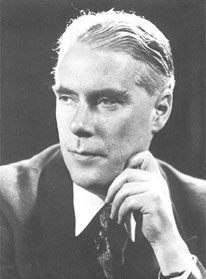Anthony Powell Quotes

Growing old is like being increasingly penalized for a crime you haven’t commited.
Anthony Powell
(A Dance to the Music of Time: Temporary Kings, 1973)
Books do furnish a room.
The aberrations of love were incalculable.
Is it better to love somebody and not have them, or have somebody and not love them?
There is, after all, no pleasure like that given by a woman who really wants to see you.
It is not what happens to people that is significant, but what they think happens to them.
Indeed, his fear was really a sort of courage, fear and courage being close to each other, like love and hate.
One passes through the world knowing few, if any, of the important things about even the people with whom one has been from time to time in the closest intimacy.
Literature illuminates life only for those to whom books are a necessity. Books are unconvertible assets, to be passed on only to those who possess them already.
When people really hate one another, the tension within them can sometimes make itself felt throughout a room, like atmospheric waves, first hot, then cold, wafted backwards and forwards as if in an invisible process of air conditioning, creating a pervasive physical disturbance.
All love affairs are different cases, yet, at the same time, each is the same case. Moreland used to say love was like sea-sickness. For a time everything round you heaved about and you felt you were going to die - then you staggered down the gangway to dry land, and a minute or two later could hardly remember what you had suffered, why you had been feeling so ghastly..
For some reason, the sight of snow descending on fire always makes me think of the ancient world – legionaries in sheepskin warming themselves at a brazier: mountain altars where offerings glow between wintry pillars; centaurs with torches cantering beside a frozen sea – scattered, unco-ordinated shapes from a fabulous past, infinitely removed from life; and yet bringing with them memories of things real and imagined. These classical projections, and something in the physical attitudes of the men themselves as they turned from the fire, suddenly suggested Poussin’s scene in which the Seasons, hand in hand and facing outward, tread in rhythm to the notes of the lyre that the winged and naked greybeard plays. The image of Time brought thoughts of mortality: of human beings, facing outwards like the Seasons, moving hand in hand in intricate measure: stepping slowly, methodically, sometimes a trifle awkwardly, in evolutions that take recognisable shape: or breaking into seeminly meaningless gyrations, while partners disappear only to reappear again, once more giving pattern to the spectacle: unable to control the melody, unable, perhaps, to control the steps of the dance.
I used to imagine life divided into separate compartments, consisting, for example, of such dual abstractions as pleasure and pain, love and hate, friendship and enmity; and more material classifications like work and play: a profession or calling being, according to that concept - one that seemed, at least on the surface, unequivocally assumed by persons so dissimilar from one another as Widmerpool and Archie Gilbert, something entirely different from “spare time.” That illusion, as such a point of view was, in due course, to appear - was closely related to another belief: that existence fans out indefinitely into new areas of experience, and that almost every additional acquaintance offers some supplementary world with its own hazards and enchantments. As time goes on, of course, these supposedly different worlds, in fact, draw closer, if not to each other, then to some pattern common to all; so that, at last, diversity between them, if in truth existent, seems to be almost imperceptible except in a few crude and exterior ways: unthinkable, as formerly appeared, any single consummation of cause and effect. In other words, nearly all the inhabitants of these outwardly disconnected empires turn out at last to be tenaciously inter-related; love and hate, friendship and enmity, too, becoming themselves much less clearly defined, more often than not showing signs of possessing characteristics that could claim, to say the least, not a little in common; while work and play merge indistinguishably into a complex tissue of pleasure and tedium.
